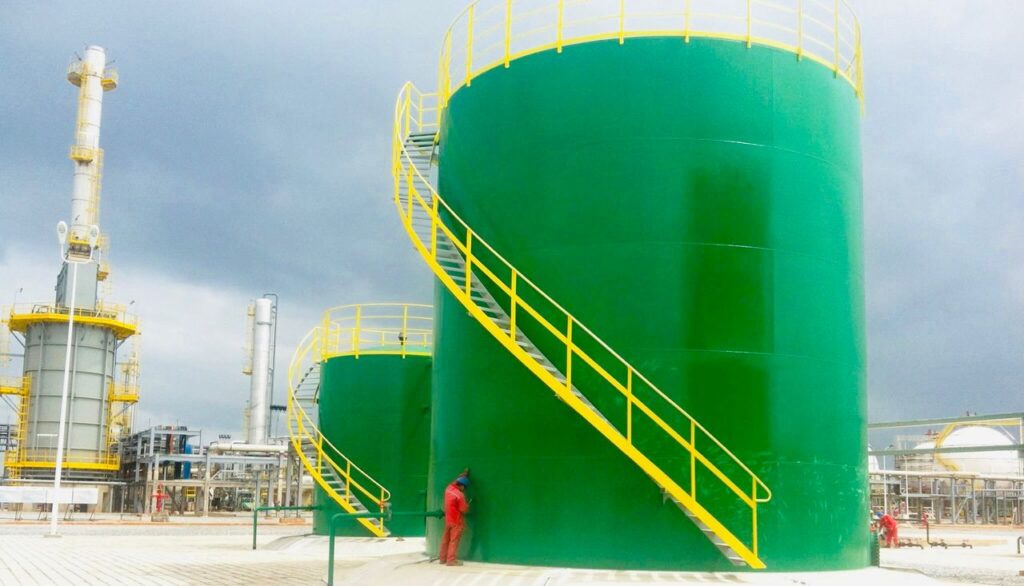The Implementation Committee overseeing the development of Ghana’s Second Gas Processing Plant (GPP II) has officially submitted its final report to the Steering Committee at the Ministry of Energy and Green Transition.
The handover marked a critical turning point in Ghana’s long-term strategy to leverage its natural gas resources for energy independence, industrialisation, and economic transformation.
The submission follows a month-long process of extensive consultations, feasibility assessments, and technical evaluations carried out by the committee, which was formed to guide the project’s pre-implementation phase.
“Today’s submission reflects our commitment to advancing Ghana’s gas future.
“GPP II is not merely a project; it is a crucial tool for achieving energy independence, fostering job creation, and driving industrial transformation.”
Hon. John Abdulai Jinapor, Minister for Energy and Green Transition
The final report lays out a clear roadmap for the development of GPP II and its associated infrastructure.

Co-chaired by the Honourable Ministers for Energy and Finance, the Steering Committee provided the policy direction for the project, while the Implementation Committee handled technical details, regulatory consultations, and financial modelling.
The report highlighted substantial economic and energy security advantages for Ghana. One of the key benefits includes annual savings of up to $1 billion by cutting down on the country’s dependence on costly imported liquid fuels.
Additionally, the recovery of Natural Gas Liquids (NGLs) is projected to generate approximately $151 million in market value each year, contributing significantly to national revenue.
The project is also expected to stimulate job creation, with more than 2,500 employment opportunities across both construction and operational stages, boosting local economic activity.
Finally, these developments could establish Ghana as a strategic regional hub for gas processing and energy exportation in West Africa, enhancing its influence and competitiveness in the regional energy market.
The GPP II will not only expand Ghana’s domestic gas processing capacity but also create linkages with power generation, fertilizer production, and industrial feedstock markets.
From Planning to Execution

With the report submitted, the Ministry of Energy and Green Transition pledged swift action toward the execution phase of the project.
“The Ministry reaffirms the Government’s full commitment to ensuring that the GPP II project progresses smoothly into execution, unlocking Ghana’s gas potential for long-term value and inclusive growth.”
Hon. John Abdulai Jinapor, Minister for Energy and Green Transition
The successful completion of the report was credited to the collaborative efforts of various stakeholders, including government bodies, regulatory agencies, and private sector partners, whose coordination was key to its development.
The Minister gave special recognition to Hon. Richard Gyan-Mensah (MP), Deputy Minister for Energy and Green Transition and Chairman of the Core Technical Committee, Mr. Guure Brown Guure, Project Development Coordinator, and all members of the Implementation Committee for their technical expertise, policy guidance, and strategic leadership.
“We commend the Committee for its dedication and clarity, and we are determined to act swiftly on its recommendations.”
Hon. John Abdulai Jinapor, Minister for Energy and Green Transition

The plant is expected to build on the success of the first gas processing plant at Atuabo, providing critical redundancy and scalability.
“Natural gas offers us a cleaner bridge to industrialisation.
“With GPP II, we are not only investing in infrastructure; we are investing in Ghana’s long-term resilience and regional leadership.”
Hon. Richard Gyan-Mensah, Deputy Minister for Energy and Green Transition
With additional processing capacity, Ghana will be better positioned to meet domestic demand for power generation and industrial input, while also opening new avenues for regional gas exports.
Moreover, the implementation of GPP II aligns with Ghana’s broader energy transition agenda, supporting a cleaner and more efficient energy mix while contributing to the country’s decarbonisation commitments.
READ ALSO: Mastercard and Access Bank Unveil Innovative Age-Segmented Card to Empower Ghana’s Youth



















